Eternity is not something that begins after you're dead. It is going on all the time. We are in it now
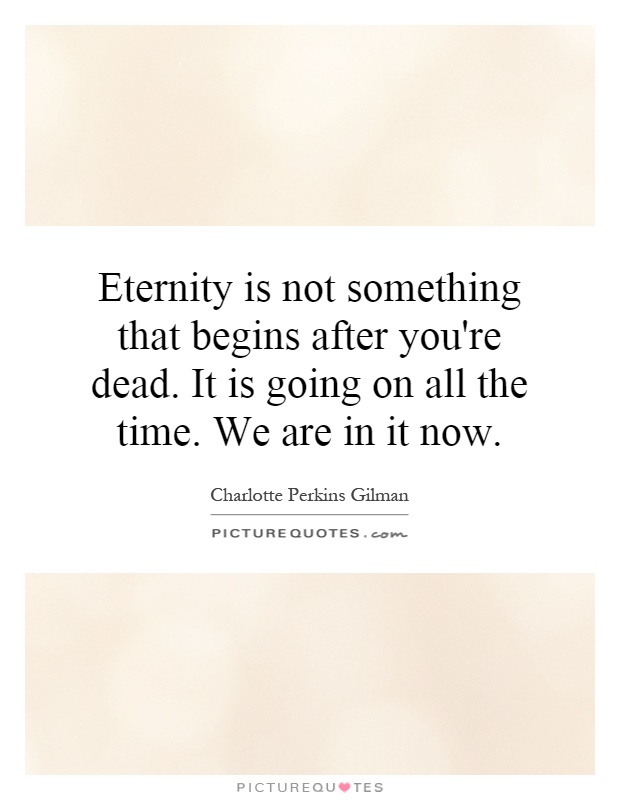
Eternity is not something that begins after you're dead. It is going on all the time. We are in it now
Charlotte Perkins Gilman was a prominent American writer, feminist, and social reformer who is best known for her groundbreaking work, "The Yellow Wallpaper." Throughout her life, Gilman was a vocal advocate for women's rights and social equality, and her writings often explored themes of gender roles, mental health, and the oppressive nature of patriarchal society.One of Gilman's lesser-known works, "The Living of Charlotte Perkins Gilman," contains a quote that resonates deeply with her beliefs and philosophies: "Eternity is not something that begins after you're dead. It is going on all the time. We are in it now." This quote encapsulates Gilman's belief in the interconnectedness of past, present, and future, and the idea that eternity is not a distant concept but a continuous and ever-present reality.
For Gilman, the concept of eternity was not limited to religious or spiritual beliefs but was a fundamental aspect of human existence. She believed that each individual is part of a larger cosmic whole, connected to the past, present, and future in a seamless and unbroken chain of existence. In this sense, eternity is not something that begins or ends with death but is an ongoing and perpetual state of being that encompasses all of life.
Gilman's quote also speaks to her belief in the power of the present moment and the importance of living fully in the here and now. She believed that by embracing the present moment and recognizing our place in the eternal flow of time, we can find meaning, purpose, and fulfillment in our lives. By acknowledging our connection to the past and our influence on the future, we can live more consciously and intentionally, making choices that align with our values and beliefs.
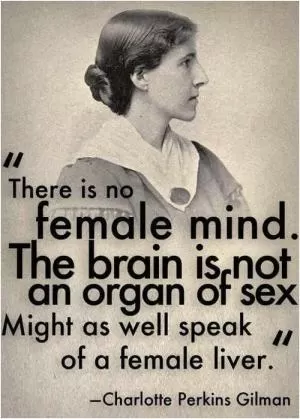
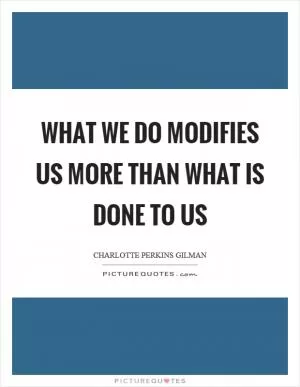

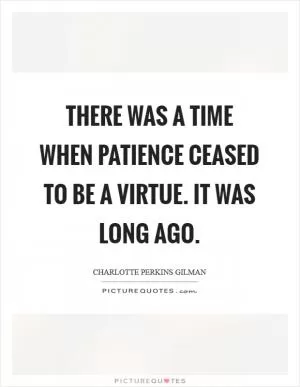
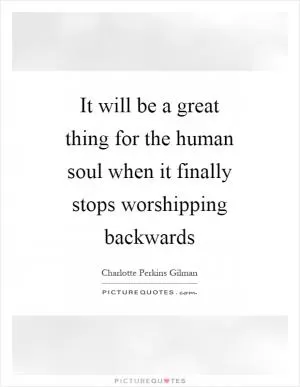

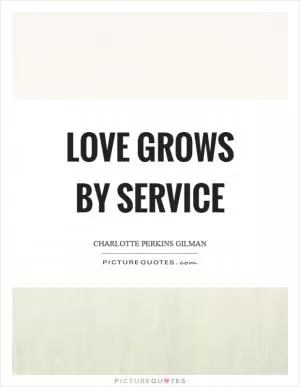
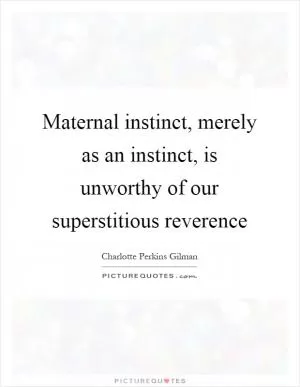
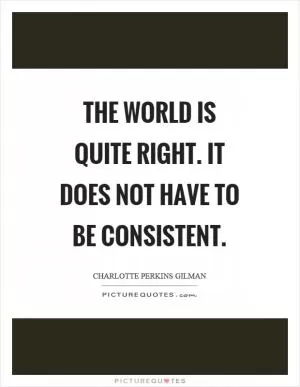
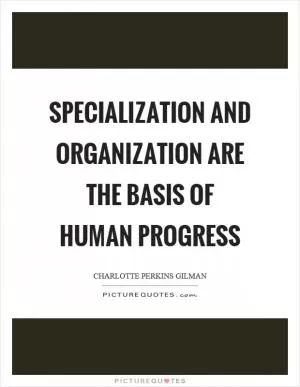
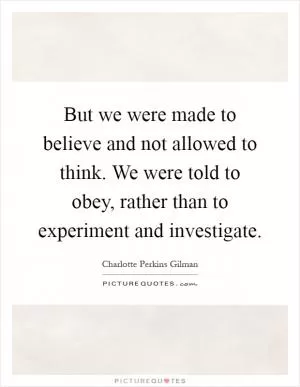
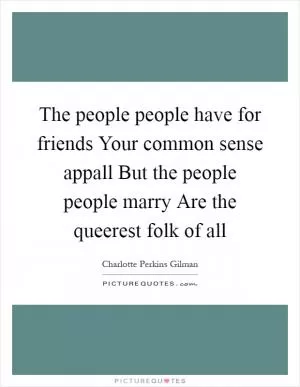
 Friendship Quotes
Friendship Quotes Love Quotes
Love Quotes Life Quotes
Life Quotes Funny Quotes
Funny Quotes Motivational Quotes
Motivational Quotes Inspirational Quotes
Inspirational Quotes